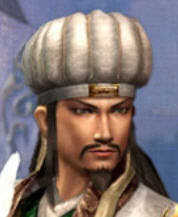The Comforting Cocoon of Captivity
Of all the majestic progress achieved by humanity, it is the Industrial Revolution that I stand in awe of. For the Industrial Revolution spawned a prodigy known to us as the 9 to 5 system. Most of us have experienced the pleasure of working under this system. Even the financially independent would not willingly abandon it; what more of us who need it to put food on our tables? I believe there are three main reasons why the vast majority of us preferred to be cocooned:
(a) Direction
I suspect if I were to carry out a survey in the streets of Kuala Lumpur asking people ‘What is the purpose of your life?’, I would get blank stares or just a plain ‘duh?’. There is a tendency for people to live their lives like lemmings. Many act foolishly believing themselves to be immortals unaware that Death lurks nearby.
The irony of the 9 to 5 system is that it supplies this unspoken need. An all encompassing economic system that allocates jobs based on the invisible hand of Adam Smith. To the laborer, it supplies not only food on the table but to usurp the mantle to the throne of life itself. For the lemmings, by and large:
WORK = MEANING OF LIFE
What could be simpler? There is no need for rambling discourses or philosophical musings. There is work to be done, so one devotes a substantial portion of our life force into work. Perhaps we should think for a moment: Do you Live to Work or Do you Work to Live?
(b) Order
The universe is chaotic, random and arbitrary. Even though things appear orderly on the surface, there has been and always will be Black Swan events. For the average worker, what could be more comforting than the mundane and dull 9 to 5 system? Day in, day out, one comes to work at the same time, in the same place and does the same things. As time goes by, the mind shuts off and the robot takes over. Why walk out of the comfort zone to experience something new? For many, ‘Ignorance is Bliss!’
Yet, when factories are being closed down or when oil prices shoot through the roof, these are the same people who expect *someone* else to assist them. Suddenly, there is a jolt through their system as they realize their skills are obsolete and they have been left behind. Being on auto-pilot for so long, they are unable to adapt. What then?
(c) Pride
For the majority, the work which we perform 9 to 5 is not something that we have consciously chosen. It was arbitrarily chosen and shoved down our throats. ‘Here, take this! You were meant to do this the rest of your life!’
Strangely enough, most people accept this as their Fate and do not attempt to move beyond this. Sure, people b*tch all the time about their bosses, companies, systems, economy, government etc… Yet, they do not b*tch about the number one culprit that placed them there in the first place?
THEMSELVES!
Why? Work is a source of pride for us. It might be drudgery, it might be hellish, it might be harmful, and it might be meaningless or even downright unethical. Still, for the unthinking person, despite all of that, there is pride attached to work. To deride the 9 to 5 system is akin to attacking one’s own sense of worthiness.
Conclusion:
It might be wise for us to open our eyes. Workers are being retrenched or laid off through no fault of their own. State-of-the-art systems are failing. Prestigious companies like AIG and Merill Lynch have succumbed to the financial crisis. At times like these, remember that work by itself, cannot give meaning to life. It is we who must give meaning to our lives and our work. For when you know your purpose in life, you will no longer be subject to the vagaries of life. As a sage once uttered, ‘The unexamined life is not worth living.’
Do you agree? Or vehemently disagree? Comments are most welcome.


































